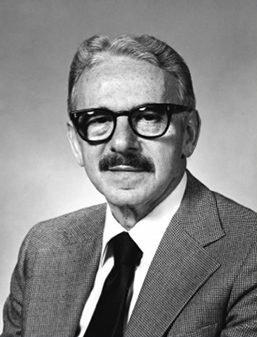
When Robert Becker obtained his BS degree in marketing from NYU in 1941, one of his professors recommended him for a job as a copywriter at Plough in Memphis. Taking the job with Plough set him on the path to a successful career in pharmaceutical advertising. On returning from the service after World War II, it was this apprenticeship with legendary Abe Plough’s company that helped him land a job with the Murray Breese advertising agency—the principal Rx agency in New York. While at Breese, Becker decided to concentrate on pharmaceuticals and enrolled in Rutgers School of Pharmacy’s evening courses. Eventually, working part-time on his degree, he gained his RPh from Long Island University. Others have since combined marketing and pharmacy postgraduate work, but Becker was likely the first to do so in pharmaceutical advertising.
He moved from Breese to Squibb as advertising manager and after a time overseeing promotional programs, decided to go out on his own in 1957. He joined with Dean Burdick, an executive at McAdams, and Don Fitzsimmons from the Chicago Rx scene, to form Burdick, Becker and Fitzsimmons. The three eventually went their separate ways, but the founding of this agency marked a significant step in medical advertising. It set an example for others working for the small number of existing agencies that there was room for more agencies in a market expanding rapidly with a steady flow of new brand name prescription drugs.
The Robert A. Becker agency was founded in 1961. It grew with the pharmaceutical industry in the 1960s, handling products for a number of leading manufacturers like Sandoz, Lederle, Roerig, Syntex, Mead Johnson, SKF, and Merck, its principal client for many years. Becker launched such breakthrough drugs as Diuril and Indocin for Merck.
The agency’s work for Smith Kline & French led Becker into publishing. When the house organ, Consultant, which the agency had created for SKF, became available, Becker bought it, ran it for a few years, and then sold it. This experience primed him for other publishing ventures and he developed and produced, separate from the agency, Hospital Medicine and Medical Aspects Human of Sexuality—successful journals for a number of years.
Becker’s avocational interests resulted in the founding of the Beethoven Society, which presented 110 concerts at Lincoln Center devoted to the more rarely performed works of the composer. He sponsored research on Beethoven’s life and works and has an extensive collection of Beethoven paintings, sculptures, and memorabilia. For these endeavors, he was decorated by the governments of Austria, the Federal Republic of Germany, and the city of Vienna.
Becker retired in 1995.